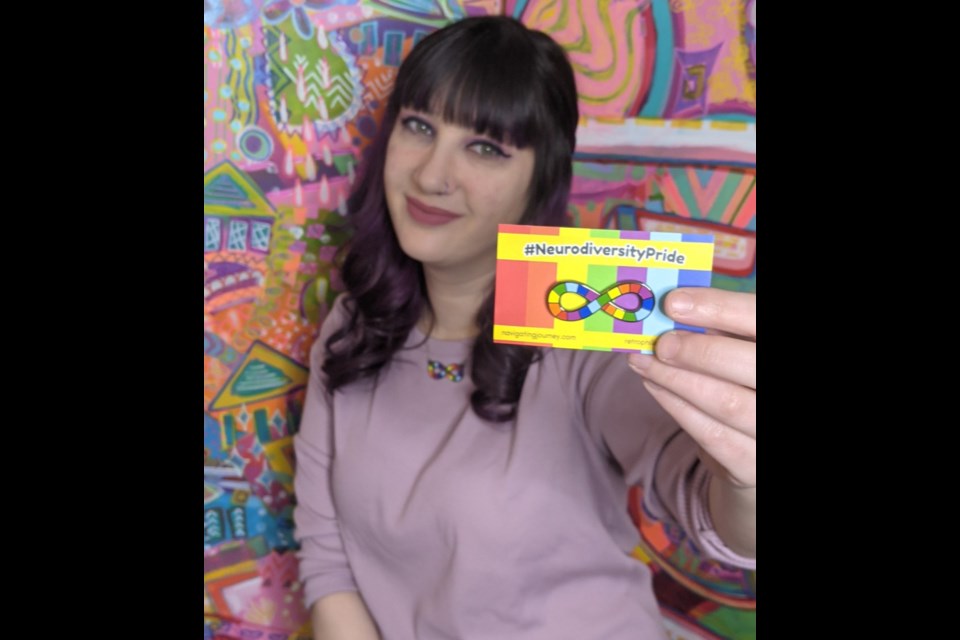A Port Moody artist is using World Autism Month to shed light on the perception of people with the developmental disorder.
Margaux Wosk, who works under the pseudonym “Retrophiliac” to reflect a love for arts and culture in the 1960s and ‘70s, was diagnosed with autism five years ago, at the age of 28.
Since then, Wosk — who identifies as non-binary, using the pronouns they/them — said a mission has been to raise the level of discussion about autism through a website and various social media channels such as Facebook, Instagram, YouTube, Twitter and TikTok.
Wosk also creates and sells enamel pins, face masks, clothing and tote bags on the Etsy store under the #neurodiversitypride line, which received funding from the BC Arts Council; Wosk hopes to get the products in Tri-City retail stores soon.
Through art and outreach, Wosk said the aim is to “reduce the negative stigmas of what autistic people are capable of. Art can be a catalyst to have that conversation.”
Wosk, who moved to Port Moody in 2019, is particularly outspoken about the phrase “autism awareness" — used by the United Nations and Autism Speaks — because the artist doesn’t believe it is powerful enough. “Being aware of something doesn’t mean you accept it,” Wosk writes in a blog, pressing instead for the term “autism acceptance” to be used more widely (as the Autism Society promotes).
Wosk also shuns the blue or puzzle symbols often associated with autism advocacy, calling the colour and imagery “harmful” because “I don’t need to feel like I’m broken, missing part of myself or needing some kind of solving,” Wosk writes.
“What people think about autism right now isn’t necessarily good,” Wosk told the Tri-City News. “It’s really harmful to continue to perpetuate the fact that people aren’t capable of things, but we just have to do them in different and unique ways.”
Wosk doesn’t have support needs; however, Wosk has sensitivities to light, food, fabric and noise, among other things. Still, Wosk's vibrant paintings with acrylics and markers allows the artist to be in sync with the craft.
Wosk is trying to get the message out by sharing the story, and offering a “broader and more positive” take on autism. “This is not something that can be eradicated or cured,” Wosk said of the disorder. “It’s genetic, and we are proud.”


